This IIT alumnus is making rural tourism accessible with a taste of adivasi culture
From travelling on bullock carts to engaging in DIY activities with bamboo and dancing to the tunes of adivasi folk music— Prakash Gupta’s Harisal tourism offers tourists an experiential travel option while providing a livelihood to villagers.
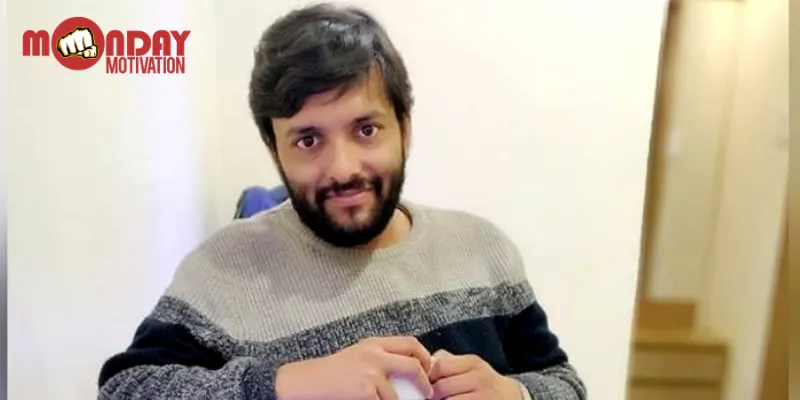
Prakash Gupta
Amid the dense forests of Melghat tiger reserve, lies Harisal, a little village in the Amravati district of Maharashtra, bordering Madhya Pradesh. With the Sipna river on one side and hills on the other, this is also India’s first Digital Village. Often described as an “immeasurable beauty”, it is home to 1,200 people, including 400 tribal families belonging to the Korku tribe.
Prakash Gupta, an alumnus of IIT Guwahati, was first introduced to this village when he joined Microsoft in 2018 to work on the organisation’s digital village programme.
“However, the unique location of the village and the culture of the Korku tribe gave me the motivation to start an ecotourism initiative,” he recalls.
From solar-powered panels to accessible WiFi, jungle safaris to immersive cultural experience with the native Korku tribe to partaking in local village activities— Prakash’s Harisal Tourism initiative offers multiple attractions to visitors.
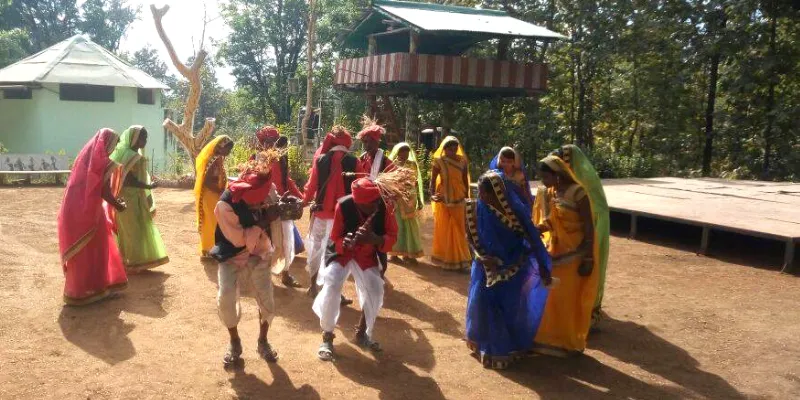
The Korku tribe performs dance and music.
Moreover, his community led and non-profit organisation has helped provide sustainable livelihood opportunities to the villagers as his homestay employs only the locals. Tourists can experience the rustic rural life by working with the farmers, eating the local food cooked with locally grown ingredients, participating in native music and folk dance, and by planting trees in the village.
Over the past year, the homestay has attracted hundreds of guests through word of mouth alone.
Getting connected
Harisal was infamous as the malnutrition capital of India. Scoring significantly low on all Human Development Index parameters— education, employment, and income levels— it was characterised by a lack of roads, irregular power, low mobile connectivity, and minimal public infrastructure.
To address these challenges, the Maharashtra state government signed an MoU with Microsoft in August 2015 to develop this village as a pilot for India’s first ideal Digital Village. The idea was that if this village, with the worst HDI, could be developed, then the model could be replicated in other villages as well.
“The Digital Village project was born of a meeting between Microsoft CEO Satya Nadella and Maharashtra’s Chief Minister Devendra Fadnavis who wanted the state government to partner with the company to create a digital village powered by the best-in-class technology,” explains Microsoft India.
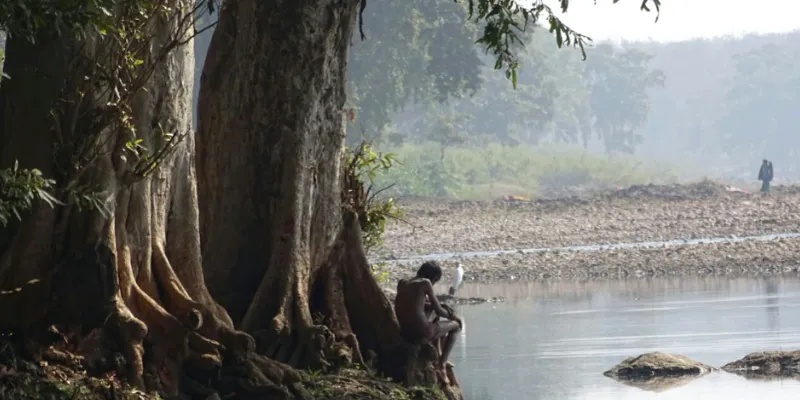
Providing rural internet and digital literacy was a “national priority” under the Digital India initiative, which aligned with Microsoft India’s National Empowerment Plan.
Hence in 2016, Microsoft used its “white space” technology - the unused spectrum between two TV channels - to provide free internet connectivity to Harisal and its neighbouring villages. To provide the village with medical and healthcare facilities, the state government partnered with Amravati Super-specialty Hospital.
Also read: Why agri and eco-tourism have become popular with city dwellers and busy professionals
Creating livelihood opportunities
By 2018, the Harisal village was digitally connected, and was also shortlisted for the Prime Minister’s Award for excellence in Public Administration.
When 29-year-old Prakash came to the village, he began to think of ways to create sustainable livelihood opportunities for the locals. As a former SBI Youth for India fellow (2014-15), he was aware of the “power of community participation” and “collective action” to address challenges.
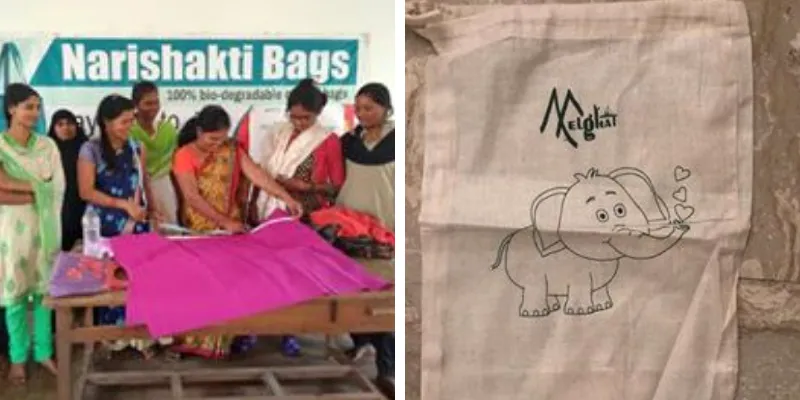
Women in Harisal village make 100 percent bio-degradable cotton bags.
As the first step to making the villagers financially stable, Prakash, along with his Microsoft team, provided weaving training to the village women. Men were trained to make bamboo products such as mats, vases, bowls, and baskets.
To ensure fair pay and maximise the reach of these products, the villagers were encouraged and trained to sell their handwoven clothes on multiple ecommerce platforms.
Next, he turned his attention to rural tourism as “immersive and experiential travel” that is the current trend in urban areas. “People want to take a break from their busy hectic city lives and relax amid nature along with proper village stay experience in traditional tribal houses,” he says.
Prakash discussed his plans with the tribal community to develop a Harisal Tourism project. It started with five homestays with basic but comfortable facilities, reflecting a cosy lifestyle with home-cooked food and an authentic “rural experience.”
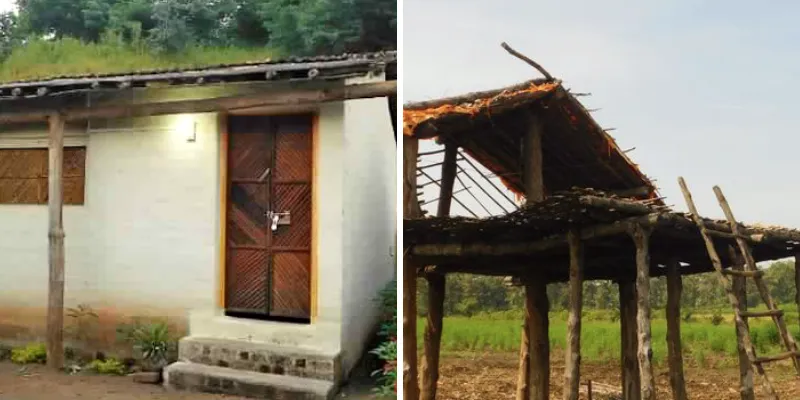
Homestays
Since there were minimal expenses involved, and the tourism essentially offered urban dwellers a glimpse of their lifestyle without hindering their lifestyle, the community agreed to the plan.
Rural tourism
As a nodal village in the relatively unexplored Melghat, Prakash explains that Harisal can offer the adventurous tourist, the best of many worlds— lush jungles with thriving wildlife, the simple appeal of rural life and a scenic view of the ghats.
He explained to the tribal community that the geographic location of the village made it a unique attraction for potential tourists as Melghat is home to over 650 species of fauna, including species of deer, sloth bears, and other rare and endangered species like flying squirrel, honey badger, pangolins, and even tigers.
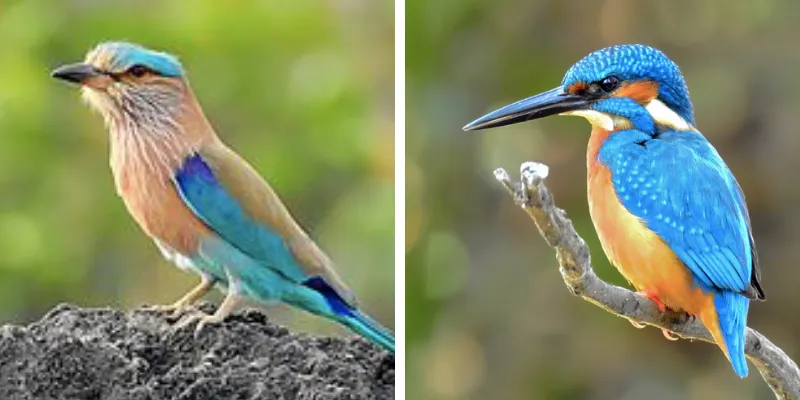
The village is home to over 650 species of birds.
He also spoke about how tourism will help the villagers showcase their unique culture to the world.
“A night of Adivasi culture by the locals of Harisal is mesmerising. The local elders tell tales about the history and culture of Melghat, followed by a performance of Korku dances,” he explains.
The Adivasi group of Korku is full of excellent agriculturists, having pioneered the cultivation of coffee and potato in Betul district of Madhya Pradesh. They speak in Korku, which is prominently classified as one of the Munda languages. Their traditional dance, called as “Gadli Susun,” is an elegant and expressive local dance form.
This dance is traditionally performed on all festive occasions and celebrations. Male flutists and dholak players are surrounded by female dancers striking the Tapti in harmonised movements that showcase the grandeur of the Adivasi culture.
Prakash’s tourism initiative offers the chance to experience farm life with an opportunity to work with the local farmers and learn about their farming practices in real-time. Tourists are also given an opportunity to learn bamboo crafting. Skilled local tribals train the tourist to make simple bamboo items, like a woven basket, toy, and a keychain holder.
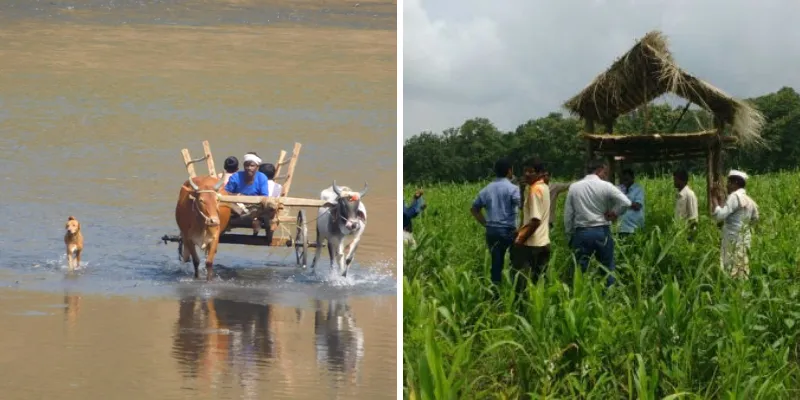
Further, the village also serves as a nodal point for monthly flea markets where people from nearby villages come and sell their products to the tourists.
The earning from each activity is given directly to the local people involved. A standard travel package for a family of four people, for a 3-day trip, costs approximately Rs 11,000.
“It's our second season now, and we have hosted around 35 guests so far. Our initiative endeavours to promote ecotourism as a sustainable livelihood opportunity. While doing it, we wish to promote a simple rural lifestyle and tribal culture,” Prakash concludes.
Also read: 4 travel trends which will drive the travel and tourism industry in 2018






